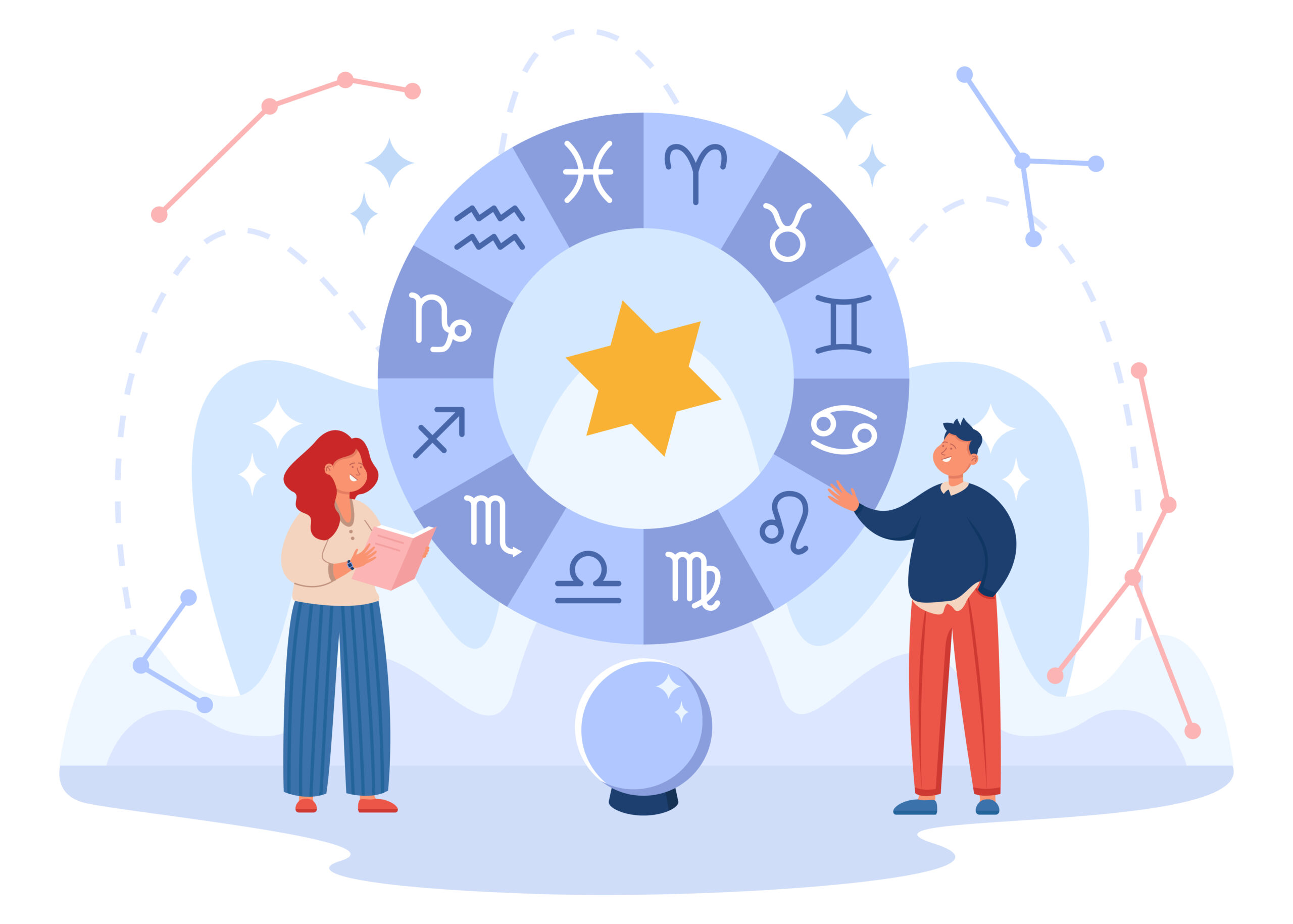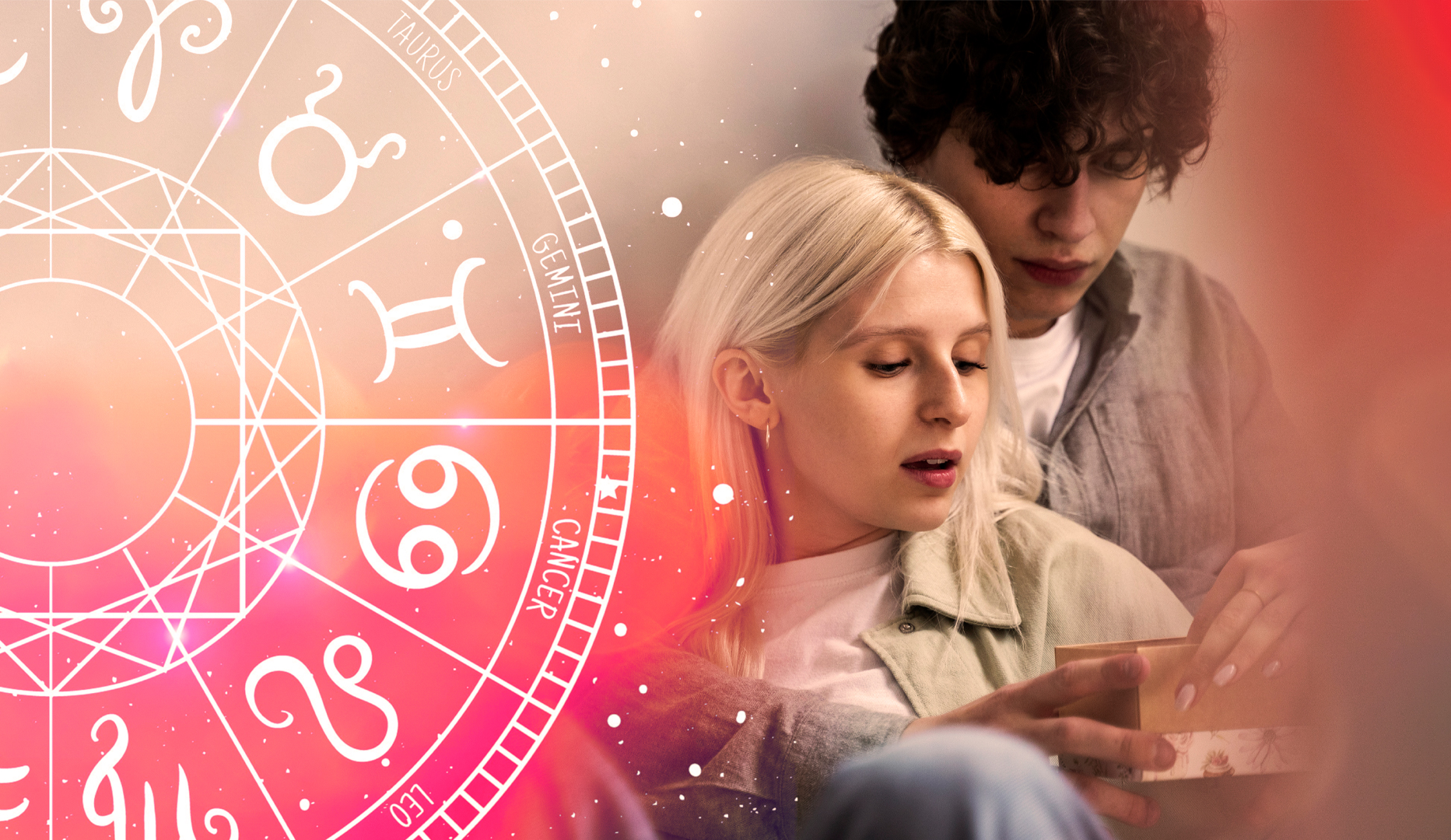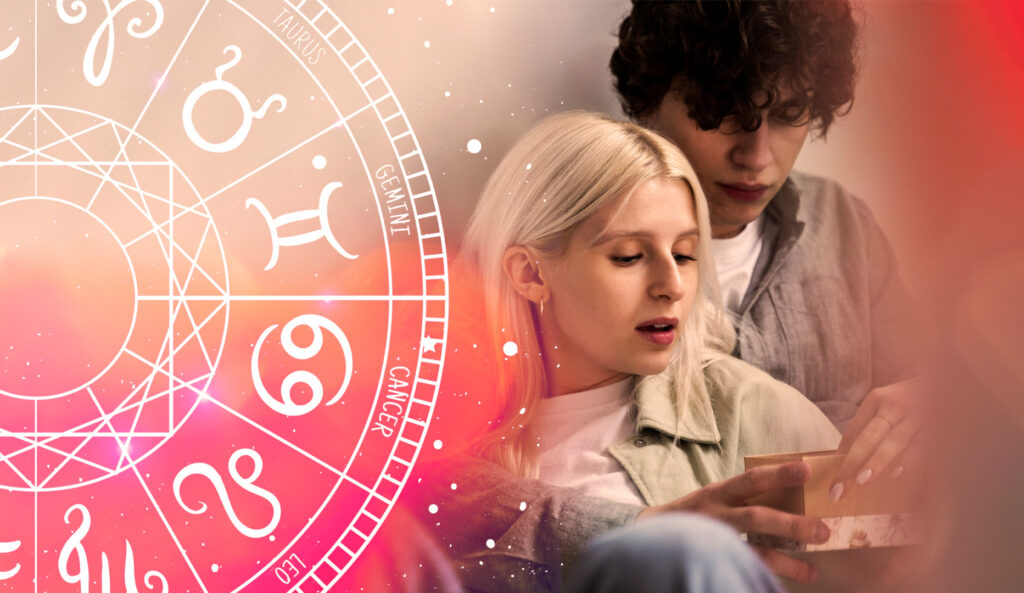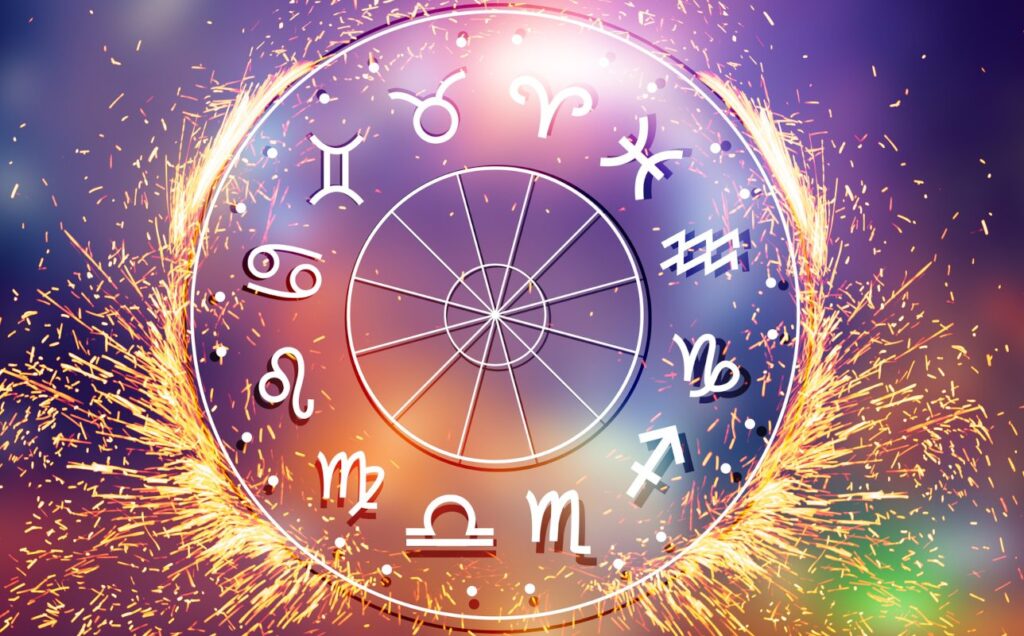What is Astrology - A Complete Guide
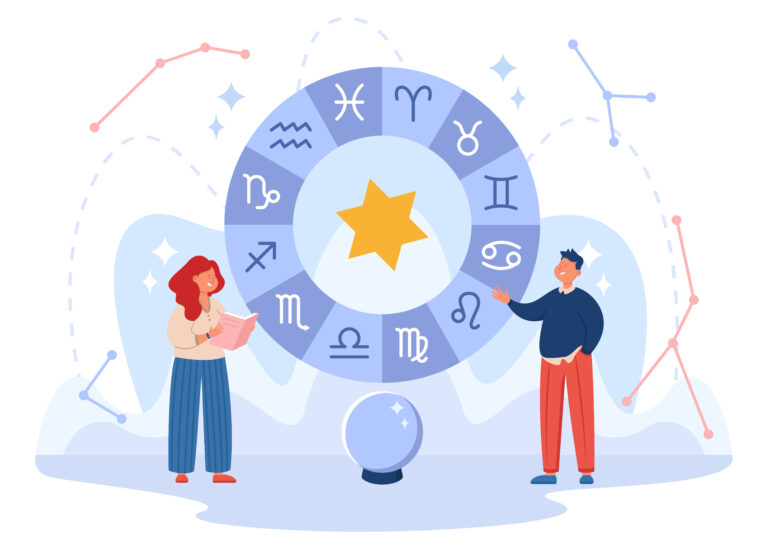
A system of beliefs and practices called astrology aims to explain how celestial bodies like planets and stars affect human affairs and happenings. Its foundation is the notion that there is the relationship and parallelism between human existence on the earth and the positions and motions of celestial bodies.
Astrology has been used by diverse societies all over the world for thousands of years and in a variety of ways. The core idea is the same across the broad spectrum of methodologies and approaches that celestial bodies have symbolic meanings and can shed light on the variety of elements of human existence.
The basis of astrology is that changes in the sublunar world are somehow determined or indicated by the celestial bodies notably the planets and stars taken into account in their random combinations. Astrology is frequently utilised for many things such as studying, personal growth and development, understanding interpersonal dynamics and self discovery.
History of Astrology
Astrological beliefs in the correspondences between celestial bodies and terrestrial events have influenced various aspects of human history including world views, language. It started in Mesopotamia (around 3000 BC) and spread to India. During the Hellenistic period, however, it took on its western form in Greece and astrology came to Islam as a part of Greek culture. During the Middle Ages, Europeans learned Arabic and brought it back to their own society. According to Greek tradition, the heavens are divided into the 12 constellations of the zodiac and the brightest stars are at the rise at the intervals that cast a spiritual influence over human affairs.
Origins and early development of Astrology
Astrology has a long history and has evolved through various civilisations like :
Mesopotamia
Greece
Egypt
India
China
Early observation of celestial bodies and their connection to human affairs
Ancient civilizations that notice patterns of connections between celestial events and earthly experiences are responsible for the earliest observations of the celestial bodies and their relationship to human affairs. Here are the few examples:
Mesopotamia
The ancient civilisations of Mesopotamia particularly Sumerians and Babylonians were among the earliest to study and record celestial observations . They meticulously recorded the celestial occurrences like Moon , Sun , planets and stars movements . These observations were related to the variety of facets of human existence such as weather movements and politics and agricultural practices . Particularly the Babylions created a complex system of astrology and celestial omens because they thought that celestial events could predict the future and have an impact on human affairs.
Egypt
The celestial bodies and the ancient Egyptians’ religious beliefs have a close connection. They notice the regular flooding of the Nile river which happened when Sirius rose . This celestial occurrence serves as a crucial marker for the agricultural calendar and influenced the timing of planting and harvesting . They also developed a calendar system based on the movements of celestial bodies, aligning their religious ceremonies and agricultural activities accordingly.
Greece
Ancient Greece was a very important part of how Western astrology came to be. Greek thinkers like Pythagoras, Plato, and Aristotle looked at how things in the sky and in people’s lives are connected. They believed in the idea of “cosmic harmony,” which said that the moves and positions of celestial bodies had a direct effect on human life and events.
India
India has a long and rich history of looking at the stars and figuring out what they mean for people. This goes back thousands of years. Astronomy and astrology were very important to the ancient Indian civilizations, like the Indus Valley civilization and the Vedic civilization that came after it.When people in India first looked at the stars, they did so in a way that was closely tied to their religious and philosophical views. The old Indians believed in “Jyotish,” which means “the science of light” or “astrology.” Jyotish tried to figure out how the sun, moon, and stars affect human life and events.
China
The ancient Chinese looked up at the sky and made links between it and the world of people. The Chinese made their own method of astrology, which is called “Chinese astrology” or the “Four Pillars of Destiny.” It is based on the lunar calendar and uses a person’s birth year, month, day, and hour to predict what will happen in the sky. Chinese astrology focuses on how time goes in cycles and how that affects people’s lives.
Prehistoric Origins and Ancient Astrological Practises
Astrology has been around since the Stone Age, a long time before people started writing things down. Even though we don’t know a lot about how people used astrology in the past, archaeological evidence shows that people in the past watched the sky and made sense of what they saw.
Cave Paintings and Rock Art:
Cave paintings and rock art are examples of archaeological finds that show that ancient people were interested in the stars. Some cave drawings show the Sun, Moon, and stars. These paintings are thought to be about 40,000 years old. These works of art show that early people had a link to the sky and knew how important it was.
Alignment with Celestial Events:
During the Neolithic and Bronze Ages, people built megalithic structures like Stonehenge in England and Newgrange in Ireland. These structures are in line with celestial events like the solstices and equinoxes. These buildings show that people in the past knew a lot about astronomical rhythms and may have used them in ceremonies or cale.
Lunar and Solar Observation
Keeping track of the Sun and Moon’s movements was important to many old cultures, such as the Sumerians, Babylonians, Egyptians, and Mayans. They knew that the moon’s stages and the sun’s cycles were regular, which probably affected how they farmed and worshiped. People believed there was a link between the heavens and the earth because important cultural or farming events often happened at the same time as celestial events.
Astrological Artifacts
During archaeological digs, artifacts related to astrology have been found. For example, ancient clay tablets from Mesopotamia record omens from the sky and forecasts based on astrology. These artifacts show that early civilizations used astrology and that it was often tied to their religious and political views.
Mythology and Cosmology: Many old mythologies tell stories about how celestial things are connected to gods and how the world was made.
Due to the lack of written records, it is hard to figure out the exact details and techniques of astrology in prehistoric cultures. However, archaeological evidence suggests that early humans understood the importance of the celestial realm and probably made observations and interpretations about celestial events. These early ways of doing things helped pave the way for more organized astrological systems in later times.
Cultural and Philosophical impact of Astrology throughout the history
Throughout history, astrology has had significant cultural and philosophical impacts on societies around the world. Here are some of the key influences of astrology:
Cultural Influence:
Religion and Mythology: Astrology has often been closely linked to religious views and mythologies. Many old cultures thought that their gods and goddesses were connected to the stars and planets. Astrology gave people a way to communicate with the gods and get advice from the stars. For example, in many countries, the zodiac signs are often linked to creatures or people from mythology.
Calendrical Systems: Astrology was a key part of how the first calendrical systems were made. Using what people saw in the sky, they made calendars that marked important times for religious ceremonies, farming, and social gatherings. Calendars were very important for keeping track of what was going on in the community and how the seasons changed.
Cultural Practices: Astrology had an effect on many aspects of culture, such as naming rules, marriage, childbirth, and customs. In some countries, a person’s name was chosen based on astrology to make sure it would have a good effect on their life. Astrology was also used to find good times to get married, start new businesses, and do other important things in life.
Art and Literature: Astrology has influenced both art and writing at different times in history. Celestial bodies and zodiac signs were often shown in ancient sculptures, drawings, and writings. Artists and writers of the Renaissance often used astrological themes in their work. Astrological topics are still popular in art and writing of the present day.
Influence on Philosophy:
Harmony: A lot of philosophical systems, especially in ancient Greece and China, thought that the universe was in balance. They thought that there were links between what happened in the sky and what happened on Earth, and that the movements of planets and stars affected the fates of both people and groups. This idea that everything is linked changed the way philosophers thought about how the universe and humans are one.
Predestination vs. Free Will: The ideas of predestination and free will have been debated because of astrology. Philosophers and other thinkers have tried to figure out if our lives are predetermined by heavenly forces or if we can change our futures by the choices we make. This debate is still important in philosophical talks today.
Self-Knowledge and Self-Understanding: Astrology has been thought of as a way to get to know and understand yourself. People look at their birth charts to learn about their personalities, skills, weaknesses, and patterns in life. Trying to understand yourself fits with many philosophical and psychological theories.
Relationship with Nature: The way astrology looks at the stars brings people closer to the natural world. Philosophers have thought about how the rhythms of the universe affect people and where they fit in the bigger universe. This bond with nature has affected ideas about ecology and the environment.
Overall, the cultural and philosophical effects of astrology show that people have always been interested in the cosmos and have been looking for meaning, self-understanding, and a connection to the larger world. Even though scientific knowledge has changed and skepticism has grown, people and groups all over the world still practice and value astrology for its cultural richness and the way it can help them understand themselves.
Zodiac Signs in Astrology
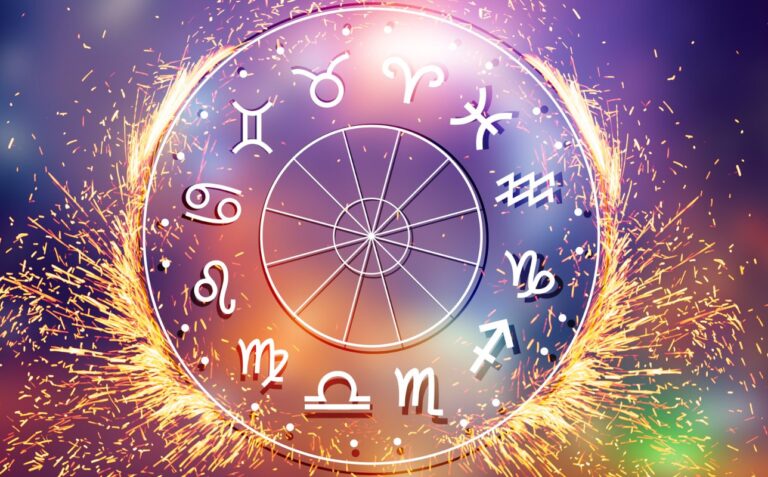
In astrology, the zodiac is broken up into twelve signs. Each sign has a certain date and mental traits that go with it. Zodiac signs in astrology refer to the twelve divisions of the zodiac, each associated with specific dates and corresponding personality traits. Significance of Zodiac Signs :
Personality Traits : It is believed that each zodiac sign has its own set of personality traits, strengths, vulnerabilities, and inclinations. These characteristics are frequently associated with the constituent properties (fire, earth, air, and water) and planetary rulers of each zodiac sign.
Sun Sign Astrology: The most prevalent use of zodiac signs is in Sun sign astrology, in which a person’s Sun sign is determined by their date of birth. The Sun sign is considered the most influential sign on a person’s fundamental personality traits and general characteristics.
Self Knowledge: Zodiac signs provide a framework for individuals to better comprehend themselves. Individuals can gain insight into their natural inclinations, abilities, and prospective obstacles by identifying their Sun sign. This self-awareness can aid in personal development, interpersonal interactions, and decision-making.
Compatibility and Relationships: Zodiac signs provide a framework for individuals to better comprehend themselves. Individuals can gain insight into their natural inclinations, abilities, and prospective obstacles by identifying their Sun sign. This self-awareness can aid in personal development, interpersonal interactions, and decision-making.
Culture and Popularity: Numerous cultures have adopted zodiac signs, and they have become widely recognised symbols. They frequently appear in mainstream culture, horoscopes, and personality evaluations. Numerous individuals firmly identify with their zodiac signs and find them intriguing or significant.
12 Zodiac Signs
Aries (21 March – 19 April): The first sign of the zodiac, Aries is known for its vitality, assertiveness, and leadership qualities. Arians are typically self-assured, independent, and enthusiastic individuals who appreciate taking on new challenges and initiating new projects.
Taurus (20 April – 20 May): Taurus is an earth sign associated with stability, realism, and sensuality. Taureans are known for their stability, perseverance, and appreciation of life’s finer pleasures. They are typically dependable, patient, and diligent individual
Gemini (21 May – 20 June): Gemini is an air sign recognised for its adaptability, intellectual curiosity, and superior communication skills. Geminis are typically sociable, adaptable, and quick-witted individuals who appreciate learning, interacting with others, and pursuing a variety of interests.
Cancer (21 June – 22 July) is a maritime sign characterized by emotional sensitivity, intuition, and nurturing qualities. Cancerians are renowned for their profound empathy, loyalty, and attachment to home and family. They are frequently compassionate, protective, and perceptive individuals.
Leo (23 July – 22 August) is a fire sign characterized by confidence, creativity, and a desire for recognition. Leos are typically perceived as born leaders who relish the limelight. They are enthusiastic, generous, and possess charisma.
Virgo (23 August – 22 September): Virgo is an earth sign known for its practicality, meticulousness, and analytical nature. Virgos are typically diligent, methodical, and organized individuals with a strong sense of responsibility who strive for perfection.
Libra (23 September – 22 October) is an air sign associated with equilibrium, harmony, and diplomacy. Librans are recognised for their integrity, charisma, and desire for harmony. They are frequently adept at negotiating, forming relationships, and appreciating aesthetics.
Scorpio (October 23 – November 21) is known for its intensity, passion, and profundity. Typically, Scorpios are mystifying, perceptive, and fiercely loyal individuals. They have a commanding presence and are renowned for their resolve and resourcefulness.
Sagittarius (22 November – 21 December) is a fire sign associated with adventure, exploration, and a philosophical outlook. Sagittarians are typically optimistic, receptive, and enthusiastic individuals who pursue knowledge, broaden their horizons, and welcome new experiences.
Capricorn (22 December – 19 January): This earth sign is known for its ambition, discipline, and practicality. Capricorns are typically ambitious, responsible, and goal-oriented individuals who are willing to work hard to attain their objectives.
Aquarius (20 January – 18 February) is an air sign characterized by individuality, intellect, and humanitarianism. Aquarians are typically perceived as original, innovative, and socially conscious individuals who value intellectual freedom and have a strong sense of community.
Pisces (19 February – 20 March) is a water sign associated with intuition, empathetic expressiveness, and artistic expression. Pisceans are frequently compassionate, mystical, and emotionally and spiritually connected. They possess a creative and imaginative disposition.
Astrology Types
There are five different types of Astrology:
1. Western Astrology:
In Western nations, this is the most extensively recognised and practiced form of astrology. It is based on the tropical zodiac, which divides the year into twelve equal signs, each of which is associated with specific qualities and characteristics. Features of Western Astrology are :
Tropical Zodiac
Sun Sign Focus
Planetary Influences
Aspects and Houses
Natal Charts
Popularity and Accessibility
2. Eastern Astrology:
Eastern astrology refers to various astrological systems that originated in Eastern cultures, particularly in India and China. Features of Eastern Astrology are :
Karma and spiritual focus
Lunar Astrology
Four pillars of Destiny
Nine star ki astrology
3. Vedic Astrology:
Vedic astrology, also known as Jyotish, is the most prominent form of astrology in India. It is based on ancient Vedic texts and scriptures. Vedic astrology uses the sidereal zodiac, which considers the fixed stars’ positions relative to the Earth. It places significant emphasis on an individual’s Moon sign and incorporates complex calculations and techniques to analyze life events, personality traits, and karmic influences.
4. Chinese Astrology:
Chinese astrology is deeply rooted in Chinese culture and has a rich history. It is based on the lunar calendar and the twelve animal signs of the Chinese zodiac, associated with each birth year. Chinese astrology also takes into account the elements (wood, fire, earth, metal, and water) and the yin-yang principles. It focuses on cycles of time and cosmic influences on individuals, relationships, and events.
5. Tibetan Astrology:
Tibetan astrology, also known as Tibetan horoscope or Tibetan elemental astrology, is an astrological system that originated in Tibet and is practiced by Tibetan Buddhists. It combines elements from both Indian and Chinese astrology and has a unique set of calculations and interpretations
Astrology and Personal Growth

Astrology can be a helpful way to learn about yourself and grow as a person. Astrology looks at the positions of celestial bodies in a person’s birth chart to figure out their personality, strengths, weaknesses, and trends in life.
Astrology role in personal growth and self awareness
Astrology offers insights into a person’s personality, strengths, flaws, and life patterns, which contribute significantly to personal development and self-awareness. Here are some ways astrology can aid in self-improvement and awareness:
Gaining a Deeper Understanding of Personality features: Astrology aids people in understanding their innate personality features. People can determine their prevailing characteristics, dispositions, and inclinations by looking at the locations of the heavenly bodies in their birth chart. They may embrace their distinctive qualities and focus on their personal improvement thanks to this self-awareness.
Strengths and gifts: Astrology helps people figure out what their strengths and gifts are. By looking at where the planets are in the sky, people can learn about their natural skills and abilities in different areas of life. This lets them focus on building on and using their skills to improve themselves and be successful.
Challenges and trends: Astrology helps people see trends and possible problems in their lives. By looking at the birth chart’s aspects and transits, a person can find out about repeating themes, life lessons, and areas that need more attention and growth. This understanding helps people deal with problems better and make choices that will help them grow as people.
Astrology motivates people to think about themselves and develop themselves:. People are prompted to think about their views, values, and life purpose when they look at their birth chart. Astrology helps people learn more about themselves and grow by helping them become more self-aware, reflect, and improve themselves.
Using Astrology as a tool for potential Growth and Weakness
Astrology can be a helpful way to find out about a person’s weaknesses and possible areas for growth in their life and attitude
Self Reflection and Self Awareness:
Identify trends: Astrology can help you figure out trends in your life. By looking at your birth chart’s repetitive themes, such as repeated planetary placements or aspects, you can learn more about your habits and how you act. This understanding lets you think about how these patterns might be affecting your life and make choices that will help you grow and change.
Self-Reflection on Planetary Energies: In astronomy, each planet stands for a different kind of energy and quality. By thinking about how the traits of each planet in your birth chart affect your thoughts, feelings, and actions, you can learn more about how they affect you. This self-reflection helps you figure out how to use and balance these forces to help you grow as a person.
Tracking Transits and Progressions: Another part of astrology is keeping track of heavenly transits and progressions, which show how your life is always changing and moving forward. By watching how these cosmic moves affect your birth chart, you can think about how events, challenges, and opportunities will happen at certain times. This thought helps people become more self-aware and grow as people go through different stages of life.
Integrating Astrology with Other Self-Reflection Practices: You can mix astrology with other ways to think about yourself, like writing in a journal, meditating, or going to therapy. By using astrology as a way to think about yourself, you can learn more about yourself and become more aware of different parts of your life.
Birth Chart Analysis:
In astrology, a birth chart, also called a natal chart or horoscope, is a map of where the stars and planets were when a person was born. It acts as a plan that shows how a person’s special energies and potentials change over the course of their life.
Some key points in the birth chart analysis are :
Planetary positions
Zodiac signs
Houses
Aspects
Interpretation
Unique to each individual
Tool for self understanding
Remedies for potential growth and weakness:
In astrology, remedial steps are things that are done to fix weaknesses and help a person grow based on what the birth chart shows. These steps are meant to reduce the effects of bad things, take advantage of good things, and help people in general.
Here are some of the remedies:
Gemstone therapy
Mantra and Chanting
Ritual and Puja
Astrological Remedies
Yoga and Breathwork
Meditation and mindfulness
Self Reflection and Awareness in Astrology:
Seeing Patterns: Astrology helps you see patterns and themes that keep coming up in your life. By watching how the energies of different planets interact with each other and how they line up with different parts of your life, you can become aware of patterns that affect your thoughts, feelings, and actions. Self-reflection lets you see how these habits affect your life and gives you the power to make choices that help you grow.
Exploring inner dynamics: Astrology pushes you to learn about your inner dynamics and the different parts of your personality. You can look at how the planets, signs, and houses in your birth chart work together by thinking about yourself. This process makes you more self-aware by showing you your skills, weaknesses, wants, fears, and possible areas for growth.
Transits and Progressions: When you look at the current transits and progressions of the planets in connection to your birth chart, you can learn more about yourself. By thinking about how the stars and planets move and line up, you can figure out when events, challenges, and chances to grow will happen in your life. This knowledge helps you get through changes and make choices that are good for your personal growth.
Conclusion
Different people come to different conclusions about astrology based on their own views and points of view. Here are some things to think about in general:
Astrology as a Tool:
Many people see astrology as a way to learn more about themselves and gain insights into different parts of life. It gives a framework for looking at how celestial bodies and human events interact with each other.
Personal and Psychological Insights:
By looking at the places of planets, signs, and aspects in a person’s birth chart, astrology can give personal and psychological insights. It might give you a way to talk about and understand your personality traits, life habits, and possible challenges and chances.
Astrology supports self-reflection and self-awareness by having people look at their birth charts and think about how the energies of the planets affect them.It can encourage people to think about themselves and help them understand themselves, their motivations, and their life situations better.
Subjective Interpretation:
Astrology can be interpreted in many different ways, and each person will have a different take on it. Different astrologers may look at and analyze birth charts from different points of view, use different methods, and come to different conclusions and insights.
Holistic Perspective:
Astrology is often looked at from a “holistic” point of view, which takes into account how everything in the universe is linked and the belief that celestial bodies can reflect and affect what happens to people on Earth. It motivates people to think about the bigger picture of the universe as they grow and go through life.
Astrology also gets a lot of skepticism and criticism from people who think it’s not real science or doesn’t have enough proof. Some people say that the connections between celestial bodies and human events are just coincidences or based on different ways of looking at things.
In the end, astrology leads people to very different opinions. Some people may see astrology as a useful tool for self-reflection, personal growth, and understanding. Others, on the other hand,may just see it as fun or completely ignore it.

